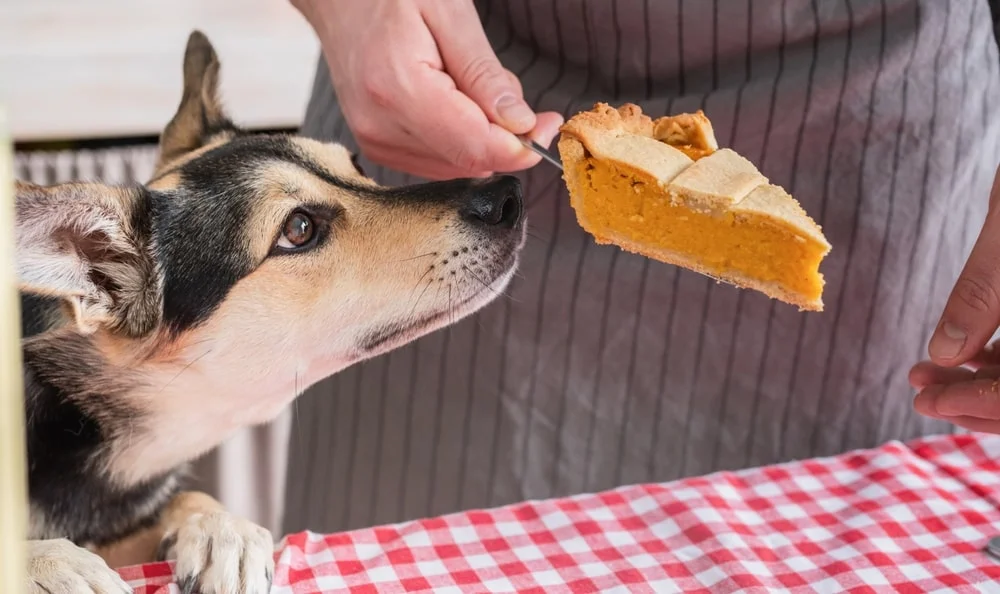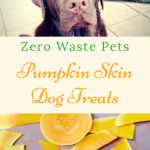Are you preparing for Thanksgiving and wondering if your furry friend can indulge in some of that delicious pumpkin pie? You’re not alone! Many dog owners face this dilemma, especially during the holiday season when sweet treats seem to be everywhere. As much as we want our dogs to enjoy the festivities with us, it’s crucial to prioritize their health and safety.
Can My Dog Have Pumpkin Pie?
In this blog post, we’ll explore the answer to this question and provide some valuable insights for dog owners. From understanding the ingredients in pumpkin pie to considering alternative treats that are safe and healthy for your pup, we’ll cover it all.
Pumpkin Pie: The Good, the Bad, and the Ugly
The main ingredient in traditional pumpkin pie is pumpkin puree, which is generally considered safe for dogs. However, many commercial pumpkin pies contain additional ingredients that can be toxic or harmful to your dog. For instance:
- xylitol, a sugar substitute found in some sweetened pumpkin pies, can cause a rapid drop in blood sugar and even lead to seizures or liver failure;
- chocolate, which is highly toxic to dogs even in small amounts;
- cinnamon, while generally safe for dogs, can cause stomach upset if consumed in large quantities.
In our next section, we’ll dive deeper into the ingredients that make pumpkin pie a no-go for your dog. Stay tuned!

In the previous section, we explored the main ingredients found in traditional pumpkin pie and highlighted some of the potential dangers for your furry friend. Now, let’s take a closer look at the reasons why commercial pumpkin pies are best left untouched by your pup.
The Hidden Dangers of Commercial Pumpkin Pie
While pumpkin puree is generally considered safe for dogs, many commercial pumpkin pies contain additional ingredients that can be toxic or harmful. Here are some key culprits to watch out for:
- Xylitol: This sugar substitute found in some sweetened pumpkin pies can cause a rapid drop in blood sugar and even lead to seizures or liver failure in dogs. According to the ASPCA, even small amounts of xylitol (about 1-2 grams per pound) can be life-threatening for your pup.
- Chocolate: As we mentioned earlier, chocolate is highly toxic to dogs due to its caffeine and theobromine content. Even small amounts of dark or semi-sweet chocolate can cause symptoms like vomiting, diarrhea, and hyperactivity in dogs.
- Cream and Butter: While a little cream and butter won’t necessarily harm your dog, consuming large quantities can lead to an upset stomach, diarrhea, or even pancreatitis in extreme cases.
- Preservatives and Additives: Some commercial pumpkin pies may contain preservatives like potassium sorbate or sodium benzoate, which can cause stomach upset, vomiting, or diarrhea in dogs. Additionally, artificial flavorings and colorings might trigger allergic reactions or hypersensitivity in some breeds.
Now that you’re aware of the potential dangers lurking in commercial pumpkin pie, it’s time to consider healthier alternatives for your furry friend. In our next section, we’ll explore some tasty and safe treat options that won’t put a dent in your holiday celebrations. Stay tuned!
Get Expert Advice on Canine Nutrition
Our team of expert pet care professionals is here to help answer your questions and provide guidance on the best ways to keep your furry friend happy and healthy.
Get Expert AdviceIn our previous section, we explored the ingredients in traditional pumpkin pie that make it unsuitable for your dog’s consumption. Now, let’s summarize the key points covered so far:
- Pumpkin puree is generally considered safe for dogs;
- However, many commercial pumpkin pies contain toxic or harmful ingredients, such as xylitol, chocolate, and cinnamon;
- These ingredients can cause a range of health issues in dogs, from seizures to liver failure.
If you’re looking for a delicious and healthy treat to share with your furry friend this Thanksgiving, don’t worry! We’ve got you covered. In our next section, we’ll introduce some alternative treats that are safe and healthy for your pup. But first, let’s recap the key takeaways:
- Always read labels carefully to ensure the treat is free from toxic ingredients;
- Prioritize your dog’s health and safety by choosing treats that align with their dietary needs;
- Avoid sharing human food, including pumpkin pie, with your dog.
In conclusion, while pumpkin pie may be a tempting treat for you and your family this Thanksgiving, it’s essential to remember that dogs have different nutritional needs than humans. By choosing healthy and safe alternatives, you can ensure your furry friend enjoys the holiday season without compromising their well-being. Stay tuned for our next section, where we’ll share some exciting alternative treats to satisfy your pup’s cravings!
What is 1 Bilirubin in Dog Urine: A Comprehensive Guide: Have you ever received an abnormal dog urine test result and wondered what it means? In this article, we’ll break down the meaning of a bilirubin reading of 1 and what it could be indicating about your furry friend’s health.
Low Iron Saturation: A Critical Health Indicator: Are you aware that low iron saturation is a key indicator of poor overall health? In this article, we’ll explore the causes and consequences of low iron saturation, and provide guidance on how to address this critical health issue.


